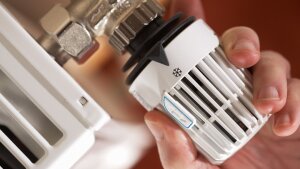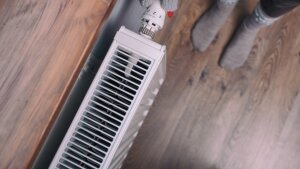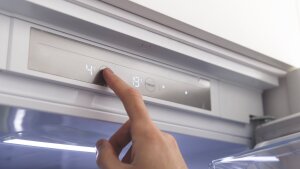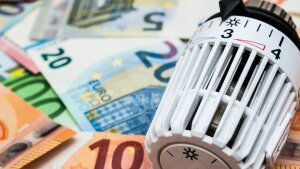
Friedrich Schiller University Jena is responding to the current energy crisis with a number of energy-saving measures. As a university, we want to prepare for potential energy shortages and rising energy costs.
Ths is why we established a dedicated ‘Energy’ task force on 27 July 2022. This task force gathers information about the university’s current energy situation and presents energy-saving measures to the Executive Board.
The Division for Construction and Facility Management has already taken centrally controlled measures to reduce the energy expenditure at our university.
However, we need the help of every single individual in order to ensure that we save energy across all facilities. Have a look at our user instructions to see how you can help.
With the introduction of the German Federal Government’s Short-Term Energy Supply Assurance Measures Ordinance (Kurzfristenenergieversorgungssicherungsmaßnahmenverordnung (EnSikuMaV)), effective from 1 September 2022, the government has issued new heating regulations for public buildings.
To complement these measures, the State Secretary Committee presented an additional ‘Energy Security’ resolution that came into effect on 22 August 2022. This resolution covers energy-saving measures for state-owned properties in Thuringia.
In 2021, the University of Jena spent approximately €8.5 million on energy, which amounts to a significant proportion of its overall budget. Energy prices have been on the rise since last autumn, increasing the university’s energy costs by €3 million last year. This means we can expect significant additional expenditures in the future. Depending on different scenarios, we may face additional drastic price increases.
Maximum room temperatures
Thermostat
Image: Adobe Stock- Light physical activity (mostly sitting): 19°C
- Light physical activity (mostly standing or walking): 18°C
- Moderate physical activity (mostly sitting): 18°C
- Moderate physical activity (mostly standing or walking): 16°C
- Heavy physical activity: 12°C
If individual rooms fall below these temperatures, please contact your facility’s caretaker de.
User instructions
-
Thermostatic radiator valve settings
Heizung
Image: Adobe StockSet your radiator valves in accordance with current room temperature regulations, making sure the specified temperatures are not exceeded. If you are absent for longer periods of time (annual leave, sick leave, a business trip lasting several days), please turn your radiator down to the ‘snowflake’ setting (frost protection). Some thermostats come with a 0 setting, but this setting should not be used as it will not guarantee the heating system’s frost protection.
-
Laptops and mobile devices
- Electronic devices such as PCs, laptops, printers and beamers must be switched off if they are not being used for a long period of time. Avoid leaving devices in stand-by mode. Use power strips that have a power switch. Enable the energy-saving mode on all devices.
- Reduce screen brightness for all devices and deactivate any screen savers.
-
Air exchange in winter
- In winter, rooms should only be aired for short periods (5-10 min). Please ensure you open windows fully. This will allow for rapid and efficient air exchange without cooling the walls and furniture, which store heat. Only in this way, will the room temperature quickly return to a comfortable level.
- Keep the heating turned off during airing to prevent heat from escaping through the window. Once you are finished airing, turn the radiator back on. Contrary to popular belief, turning a thermostatic radiator valve all the way up to 5 will not heat a room up any faster. Instead, it will just increase the amount of energy used.
-
Corridor doors
Keep doors between rooms or areas with different temperature regulations shut (e.g. offices and corridors).
-
Office lighting
Keep office lighting to a minimum. Take advantage of natural daylight whenever possible. Turn lights off during long breaks and when leaving the office after work.
-
Desk sharing at the office
Take advantage of desk sharing and remote work whenever possible (in accordance with the Remote Work Agreement), especially at the end of the week and on bridging days. Sharing heated rooms based on the number of employees present will prevent the need to heat all offices.
-
Fan heaters and heating appliances
Do not use fan heaters or electrical heating appliances.
Do not purchase electric heaters through work or use privately or previously purchased heating appliances at work.
-
Business travel
Consider sustainable alternatives to business travel (e.g. by taking advantage of digital communication).
-
Appropriate dress
If you are mostly seated at work, you should dress in a way that allows you to work comfortably without having to increase the heating beyond the permissible temperature.
-
Lecture theatres and seminar/conference/reading rooms
The temperature for lecture theatres, seminar rooms, conference rooms and reading rooms will be reduced to a maximum of 19°C, as they are comparable to office rooms. For rooms with centrally controlled ventilation and heating, keep the doors shut during courses and breaks.
Centrally controlled energy saving measures
- We control our central heating systems to ensure that room temperatures are in accordance with current regulations. However, this may not work in all rooms of a respective building. This is why we ask you to adjust your radiator valve settings accordingly to ensure that these regulations are being met. Outside office hours, during weekends, and on bridging days and public holidays, we reduce room temperatures across all facilities by centrally controlling the inlet temperature (temperature reduction at night).
- We only heat from October until April (provided that the statutory minimum standards for room temperatures are being met).
- All facilities with offices are being heated from 7:00 until 17:00 daily. We have informed all external property owners of this measure.
- We do not heat common areas (corridors, stairways, etc.). These areas have been fitted with lockable radiator valves set to frost protection. The WIFI study zones at Cal-Zeiss-Straße 3 and Fürstengraben 1 are exempt from this rule as they were designed for longer stays.
- If public service buildings are used outside regular office hours during winter, appropriate technical and organizational measures must ensure that employees can perform their duties and that the energy required for this is kept to a minimum.
- Radiator valve settings need to be reviewed regularly to match the building’s current heating requirements, especially following constructional changes (e.g. the fitting of thermal insulation).
- Warm water supply is restricted to areas where it is mandatory as a result of specific hygiene regulations (e.g. staff kitchens) or for technical reasons (e.g. laboratories).
- Newly purchased electrical appliances must be energy efficient.
- Public monuments and buildings with a purely representational or aesthetic function (e.g. University Main Building’s clock tower) will no longer be illuminated at night.
Thermostat vor Geldscheinen
Image: Adobe Stock- Air-conditioning systems and equipment are only used in areas where they are absolutely necessary (archives, server rooms, laboratories, etc.).
- The security lighting for large properties is switched off between 23:00 and 6:00.
- Foyer lights are switched off at night.
- Outdoor lights have been fitted with timers to ensure they switch off at night (except for those in public traffic areas). In addition, 95% have been converted to LED lights.
Ziegelmühlenweg 1
07743 Jena



